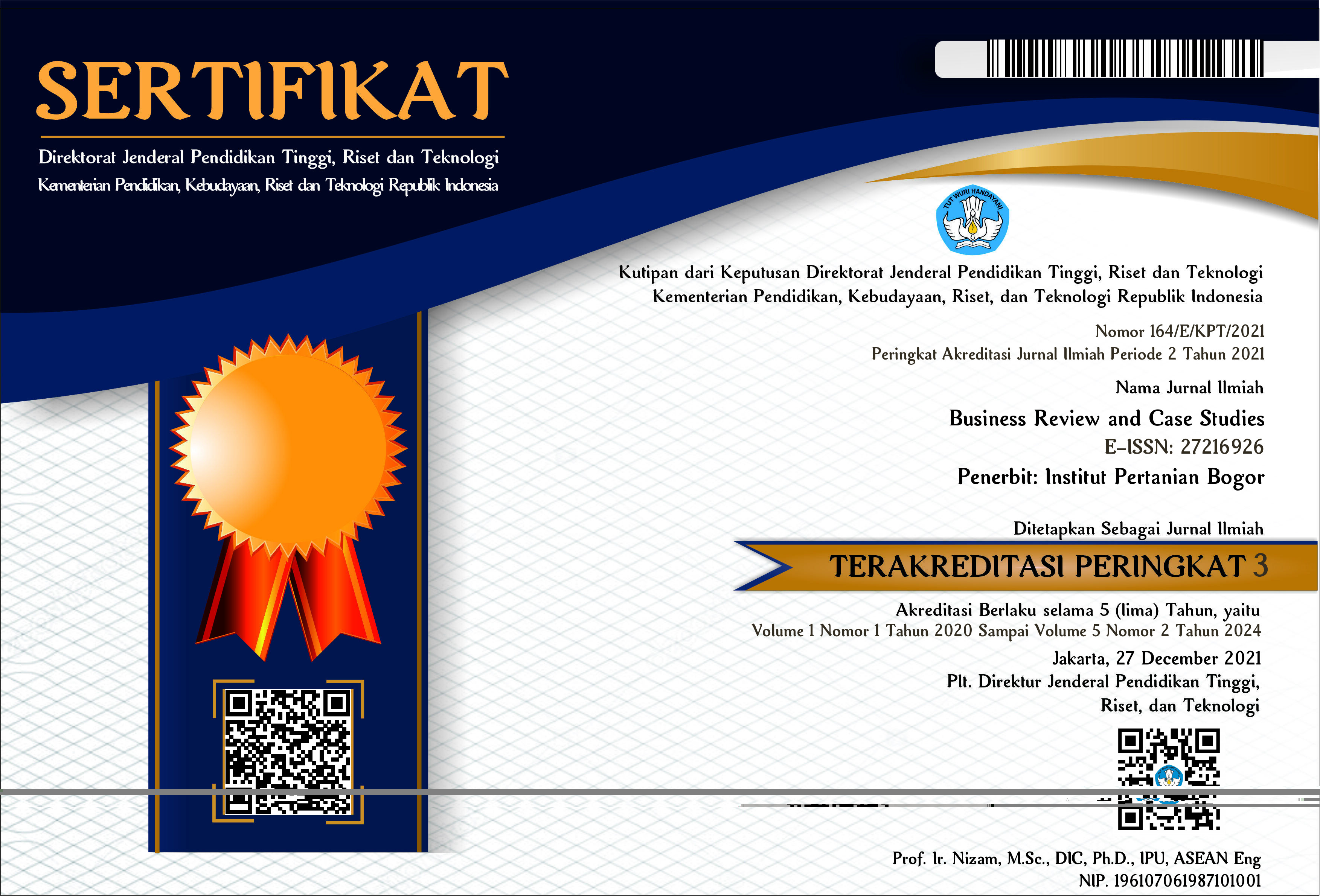Diverse E-Commerce Business Models In Indonesia: A Cluster Analysis From The National E-Commerce Survey
Abstract
Background: The extent of digital transformation among Indonesian businesses is varied, highlighting the need for an in-depth examination of the characteristics of e-commerce.
Purpose: The purpose of this study is to examine the diversity of Indonesian e-commerce business models.
Design/methodology/approach: The microdata set from the 2023 e-commerce survey was officially obtained from BPS-Statistics Indonesia. This study focuses on wholesale and retail trade and motor vehicle repair (Category G). After data cleaning, our analysis included 11,345 businesses. Cluster analysis categorized e-commerce into distinct business models based on business profiles, innovative activities, and performance. Additionally, one-way ANOVA was employed to reveal significant diversity among these Indonesian e-commerce models.
Findings/results: Five distinct business models were identified, each characterized by unique features. Business Model 1 includes business to customer (B2C) sellers with substantial offline revenue. Business Model 2 encompasses small-scale B2C sellers who focus on direct sales and also achieve significant offline revenue. Business Model 3 involves micro e-commerce sellers engaged in both B2C and business to business (B2B) transactions using traditional payment methods. Business model 4 consists of small B2B and B2C sellers with limited digital integration. Business Model 5 features marketplace-driven micro e-commerce sellers employing a hybrid approach.
Conclusion: Our examination of Indonesian e-commerce business models revealed distinct clusters, each with varying roles, customer types, payment methods, internet usage, and revenue sources, highlighting significant variability in e-commerce strategies.
Originality/value (State of the art): The originality of this study lies in its analysis of diverse Indonesian e-commerce business models to identify distinct types based on key characteristics.
Keywords: business models, B2B seller, B2C seller, cluster analysis, e-commerce







.jpg)






